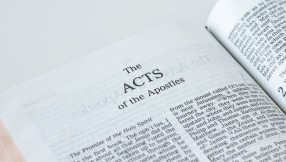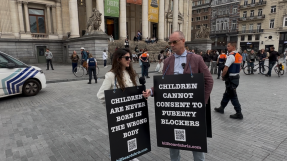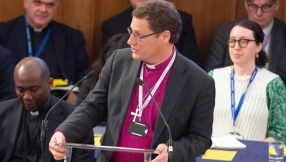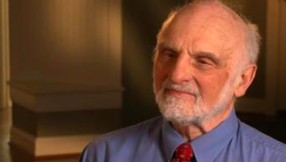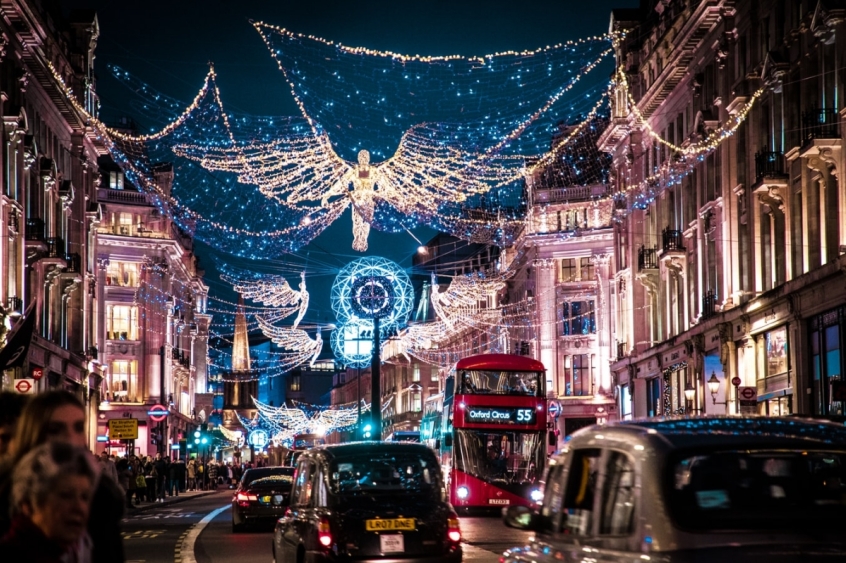
Finally, the General Election is out of the way and we can get on with Christmas. I spent the last weeks of my campaign telling people on the door step that I was 'looking forward to looking forward to Christmas'. I am sure I wasn't alone.
Many are celebrating last week's result whilst others are devastated by its implications. But for most people the focus is firmly on Christmas shopping, school nativities and the prospect of some time off. Endless Christingles, carol services and more mince pies than you care to, or want to, remember.
Christmas is a time of year when our divided nation finds something in common to gather around. It has been a bruising year, and it is unsurprising that we seek comfort in glitter and sparkle. We feel more relaxed alongside people who share a sense of the same traditions and experiences as us. We retreat to the comfort of our homes, our families, our churches. The known and the familiar.
Ultimately we are all seeking somewhere to belong. A sense that we fit in boosts our wellbeing and resilience, which in turn is great for our mental health and general outlook on life.
To build a sense of belonging as a nation, we create shared stories. These stories often speak of our victories over hardship or opposition. As the UK we have united around the two World Wars, commemorating triumph in adversity, and the bravery of those who fought and gave their lives for us.
We unite around our football teams, and our deep shared experiences as fans. I may have nothing in common with a fellow Blackburn Rovers fan, other than the fact that we were both horrified or elated by the same result at the same moment; brought to tears of dismay or joy by the same event. But there is a deep connection with those with whom we share experiences and a deep sense of belonging and ownership of our team. You see it in the way we speak about them. How did 'we' do in that match? Who is in 'our' line up? Win or lose, I contributed very little but I have nonetheless totally participated in the drama of the match.
We also pull together after shocking acts such as the Manchester bombing. They are part of our national story. I had the privilege of standing behind poet Tony 'Longfellow' Walsh in Albert Square in May 2017 when he read out his amazing poem This is the Place, about the community and pride of 'being Manchester'. He spoke of famous Mancunians such as Emmeline Pankhurst, the inventions that came out of the city, and the nostalgia of growing up there: "This is the place we first played as kids."
The strength of the poem was that it drew the community together after a horrific act of terrorism had shattered lives and families. It spoke to the heart and to the emotions: "This is the place in our hearts and our homes. This is the place that's a part of our bones."
These are vital messages to remember as our country struggles with division and animosity over Brexit and after a General Election that has dramatically altered the political map. We need to reconnect with the stories that bind us together, and remember that: "Some are born here, some drawn here. But we all call it home."
At a time of discord and disunity, where many of us are wondering what this country we call home is becoming, many need to work extra hard to find that sense of belonging. Enter Christmas; our annual festival of consumerism and twinkly lights.
Christmas comes to the shops in August. And every year it is marketed as cosier, more magical and twinklier than the year before.
Films and TV adverts are all about nostalgia for that idealized childhood Christmas. Just remember last year's John Lewis advert recreating Elton John as a young boy, being given the gift of a piano. In this version of Christmas, it is always snowing outside and sparkling inside. Windows glow, children are rosy-cheeked and parcels are expertly wrapped.
Even though most of us probably never actually experienced a Christmas like this – we may have memories of family awkwardness, arguments or absences – we want to recapture a past magic, a fabricated nostalgia. Recently we have started to weave into this a Scandi sense of wellbeing, creating a cosy feeling of hygge to ward off the dark and the cold.
Beyond politics (and we all need a break from it!) this is what our imagined haven looks like. Again the reality for many is far from it. Those who are lonely, those who feel the pain of loved ones no longer with us, those who feel disconnected and in despair. But Christmas serves an important purpose in building this shared sense of belonging. It promises security, comfort, safety.
There is a challenge in this to Christians. A challenge to reach out. It is easy to get swept up in the business of 'doing' at this time of year. The church calendar is hectic and there is so much to organize. It's a manic, familiar business. But we need to be careful that we don't mistake putting on events for truly welcoming people.
At Christmas, we remember Christ entering our mess so that he could welcome us into his family. So often at Christmas we find ourselves glossing over the mess, salving our consciousness with an easy invite for the neighbours to the annual carol service and then retreating into our families and closing the doors.
At Christmas we remember that we are all part of one story, God's story. In coming to earth as a tiny baby, God has reached into his world and invited us to join the circle of wonder gathered around the manger. We gaze in alongside the shepherds and wise men, and share with them and with all our fellow humans an understanding that we are all sinners, saved by grace through this baby who grew up to change the world.
When we stand with other Christians, we share the knowledge that we are loved by an awesome, all powerful God, who is working for good; and that we are part of his plans. We belong to one another, we share an experience and we now have a family connection. But we also belong in another sense, in that we belong to Someone, to The One. Isaiah 43:1 says: 'I have called you by name. You are mine.'
The real story of Christmas offers belonging and security in a new identity as a child of God, a shared story that lasts well beyond taking down the Christmas decorations on January 6. Jesus gave up everything so that we can experience this belonging, the belonging we were created for. My challenge to you, to myself, to all Christians, is this: what will we give up this Christmas so that someone else might be welcomed in? We might be able to remember the minute by minute schedule of Christmas dinner but how quickly do we forget the eternal story to which we truly belong?
Tim Farron is Liberal Democrat MP for Westmorland and Lonsdale and former leader of the Liberal Democrats.










